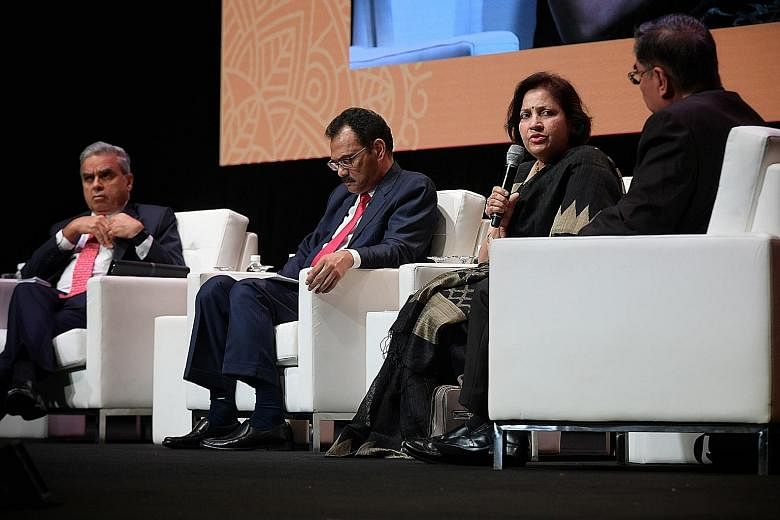Asean and India have a secret weapon in their quest for closer cooperation: the Indian diaspora.
On the second and final day of the Asean-India Pravasi Bharatiya Divas conference yesterday, ministers and officials spoke about how the overseas Indian community could help deepen ties between the two sides.
The annual conference, which celebrates the contributions of the Indian diaspora, was held in Singapore - the Asean chair - this year.
Indian External Affairs Minister Sushma Swaraj said Asean and India could work together towards a shared prosperity with the "familiarity of history and the comfort of culture". She said: "We have immense resources in the form of our diaspora in South-east Asia, to be the bridge for a new journey on an ancient route."
About a fifth, or six million, of the 31 million overseas Indians, comprising Indian citizens abroad and persons of Indian origin, live in Asean countries, according to figures from India's Ministry of External Affairs.
Ms Swaraj, who began a tour of Thailand, Indonesia and Singapore last Thursday, highlighted the deep cultural bonds between her country and South-east Asia: "I see the symbols of our ties: on the streets, in life at homes... in the rituals of diverse states, in the symbols and sounds of languages, in the poetry of the dances, in the melody of the music and in the flavours of the food."
These cultural ties were on display at last night's gala dinner, a rousing end to a two-day cultural extravaganza that shone the spotlight on Indian talents and traditions.
South-east Asia and India came together on the stage and on the plate, as guests tucked into a spread that melded culinary traditions and ingredients from the Asean region.
They also watched a fine arts performance drawing out the common threads which depict faiths and customs binding India and Asean.
India was the primary source of cultural influence in South-east Asia for much of the region's history, said the Lee Kuan Yew School of Public Policy's immediate past dean Kishore Mahbubani.
"We should use... longstanding relations to build an extremely high-trust relationship between India and Asean," he said.
Throughout the day, panellists discussed themes related to the diaspora. These included connecting diaspora youth, the role of governments in strengthening cultural links and the history of the diaspora.
Some leaders, including Foreign Minister Vivian Balakrishnan, had personal stories to share.
Dr Balakrishnan, whose great-grandparents left India more than a century ago, said: "I always remember that I would not be here... if my ancestors had not made that fateful decision to travel on this journey."
Malaysian Deputy Minister in the Prime Minister's Office S.K. Devamany, who also traced his ancestry, said: "We came in as indentured labourers. My father was an indentured labourer. Today, I'm here."
Charissa Yong
• Additional reporting by Nur Asyiqin Mohamad Salleh


